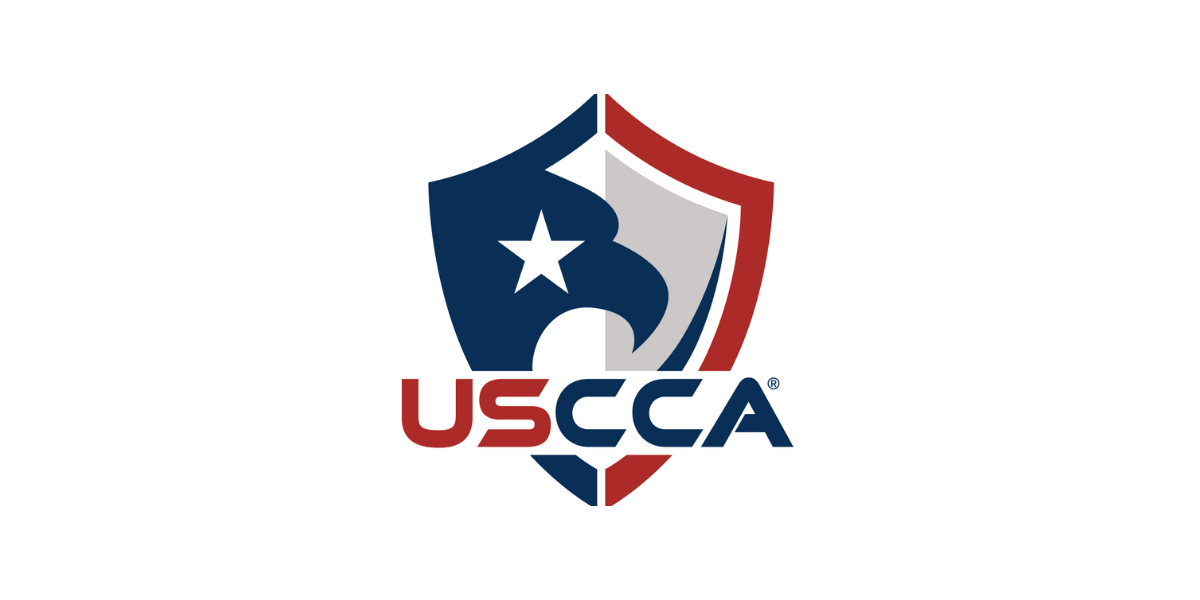Background
Did you know that if you are a qualifying small business you can be eligible for substantial economic benefits? The federal government and many state governments – including New York – have programs that provide preferences, a leg up so to speak, to small businesses on the hundreds of millions of contracts that they hand out on a regular basis. Small businesses, in order to qualify, have to meet certain criteria. Qualification is based on several socioeconomic factors that include how big your business is and who owns and controls it. One of the groups that is particularly targeted for this assistance is Service-Disabled Veteran-Owned (SDVO) businesses. As set forth below, it is important to understand what the government is looking for so that you can not only qualify for their help, but maintain it.
Federal and state governments, in fact, incentivize agencies to set aside certain contracts for socioeconomic groups by setting annual, government-wide contracting goals (e.g., 23 percent of all federal contracts to small businesses; 3 percent of all federal contracts to SDVO small businesses; 5 percent of all federal contracts to Women-Owned small businesses). The government also creates incentives to large prime contractors to do the same, providing favorable ratings for prime contractors who target and hire small businesses that qualify to assist them in the contracts that they obtain.
Small businesses vying for these preferences must be alert, because federal and state governments work diligently to prevent unqualified large or other businesses from improperly seeking to take advantage of these programs. Indeed, some seek to purposefully masquerade as preferred socioeconomic classes to get certified for these types of benefits. There is a cost for falsely seeking to qualify. For example, an Albany government contractor was recently sentenced to three-and-a-half to 12 years in prison for, among other things, using two Minority-Owned small businesses to defraud New York State on public contracts set aside and meant specifically for Minority-Owned businesses. In this instance, the fraudulent government contractor took control of the small businesses’ day-to-day operations and long-term decision-making and falsely certified them as Minority-Owned small businesses.
Requirements for Service-Disabled Veteran-Owned Small Businesses
Control and ownership are two vital requirements, which are often overlooked as part of this process, particularly with respect to SDVOBs. Failure to properly monitor either criterion could sink your business and even destroy any subcontracting relationships you have worked hard to establish. These types of mistakes can require years to rebuild and reobtain the certified status that was lost. Unfortunately, the terrain often changes through new laws and new regulations, and small businesses must not only adapt but diligently keep apprised of any new conditions as they arise.
In October 2018, the terrain changed for SDVO small businesses in federal contracting. But, many of them have not adapted, letting water silently seep into the hull.
The U.S. Small Business Administration (SBA) and the U.S. Department of Veterans’ Affairs (VA) have, historically, reviewed federal SDVO status in tandem, applying their own requirements for control and ownership. However, in 2017, Congress directed SBA and VA to consolidate their SDVO certification programs, and, in October 2018, SBA and VA issued new regulations creating a new regime for SDVO certifications. Specifically, the VA retains the Center for Verification and Evaluation (CVE) and continues certifying SDVO small businesses for VA contracts. But, VA’s CVE must apply SBA’s control and ownership requirements, which SBA applies in reviewing SDVO certifications for all other federal contracts. This unification is a huge boost to SDVO small businesses in federal contracting, creating one set of requirements for control and ownership.
Ownership
Ownership, often, is a fairly simple obstacle to overcome. SBA regulations, like many state requirements, focus on the individuals or entities that have ownership interests in the company under review and look to make sure that majority ownership is indeed with a service-disabled veteran or veterans. In particular, SBA requires that “a concern must be at least 51 percent unconditionally and directly owned by one or more service-disabled veterans” to qualify as a SDVO small business. 13 C.F.R. § 125.12. “Unconditionally” means that the service-disabled veteran’s ownership cannot be subject to any contingencies, assignments, or other restrictions. 13 C.F.R. § 125.11. “Directly” means that a service-disabled veteran must own the company under review, not a parent, affiliate, or a subsidiary; socioeconomic status does not “trickle down” corporate structures. 13 C.F.R. § 125.11. Outside of these nuances, one or more service-disabled veterans must own at least 51 percent of the company (i.e., 51 percent of aggregate voting interest for partnerships; 51 percent of member interest for limited-liability companies; 51 percent of each voting stock for corporations) to attain SDVO status.
Control
Control, however, is a more treacherous terrain. When reviewing a company for federal SDVO status, SBA and VA attempt to discern who, or what, has the power to control the company’s long-term decision-making, day-to-day management, and administration of the business. See 13 C.F.R. § 125.13. These corporate powers are the heart of “control” in federal contracting.
At the time of consolidation, SBA codified many instances where it has historically concluded control by a service-disabled veteran is unlikely or simply presumed a non-service-disabled veteran controlled the SDVO small business under the circumstances.
- Highest Officer – A service-disabled veteran must hold the highest officer position (e.g., President, Chief Executive Officer) in the company, and must have the managerial experience necessary to run the company. The service-disabled veteran, importantly, does not need to have the technical expertise or licensing required for the business. But, the service-disabled veteran must have “ultimate managerial and supervisory control” over the employees with that technical expertise or required license. 13 C.F.R. § 125.13(b).
- Super Majority Requirements – One or more service-disabled veterans must be able to overcome any super majority voting requirements for taking certain actions. 13 C.F.R. § 125.13(f). In practice, a super majority voting requirement (e.g., 75 percent of members; unanimous consent) can provide a non-service-disabled member with control over certain decisions because, without their consent, the action cannot be taken. SBA regulations only permit super majority voting requirements in “extraordinary circumstances,” such as adding a new equity stakeholder and selling, merging, or dissolving the business. 13 C.F.R. §§ 125.13(m), 125.11. Importantly, amending a business’s operating agreement is no longer an extraordinary circumstance.
SBA and VA often rely on rebuttable presumptions when considering who or what controls. Rebuttable presumptions are, more simply, conclusions made based on the circumstances that the company can disprove with evidence to the contrary, like affidavits or corporate documents (e.g., operating agreements, bylaws). Here are some of the rebuttable presumptions that a business could face during a review:
- Current or Former Employer – A service-disabled veteran is presumed not to control the business if a non-service-disabled veteran owns or helps manage the business, and the non-service-disabled veteran currently or previously employed the service-disabled veteran. 13 C.F.R. § 125.13(i)(1). In other words, SBA and VA presume a current or former employer can coerce the service-disabled veteran’s actions and, thereby, control the business.
- Normal Business Hours – A service-disabled veteran is presumed not to control the company when he or she “is not able to work for the firm during the normal working hours that businesses in that industry work.” 13 C.F.R. § 125.13(k). A service-disabled veteran may work on behalf of the company more than 40 hours per week, but that service-disabled veteran likely must show he or she is available to the business during normal business hours, even though he or she works significantly outside those hours.
- Close Proximity – A service-disabled veteran is presumed not to control the business when “that individual is not located within a reasonable commute to the firm’s headquarters and/or job-site locations regardless of the firm’s industry.” 13 C.F.R. § 125.13(l). A government contractor may have several locations nationwide, including a corporate headquarters and numerous job-sites, with the service-disabled veteran’s location alternating between those locations. SBA suggests that advanced communication systems will not suffice to show adequate control, as the service-disabled veteran may still be delegating management responsibility of the business. 13 C.F.R. § 125.13(l).
- Highest Compensation – A service-disabled veteran is presumed not to control the business when he or she is not receiving the highest compensation. 13 C.F.R. § 125.13(i)(2). If a non-service-disabled veteran is receiving higher compensation than the highest ranking service-disabled veteran, the business must show how the service-disabled veteran’s lower compensation helps the business.
- Shared Spaces – If a SDVO small business is co-located with a non-SDVO business, that SDVO small business is presumed to be controlled by that non-SDVO business if: (1) that non-SDVO small business is in the same or a similar line of business; and (2) that non-SDVO small business or its owners, managers, directors, or relatives own part of the SDVO. Put simply, if a SDVO small business shares a location with a non-service-disabled veteran owner, and that non-service-disabled veteran owner is in the same line of business, then it is presumed the service-disabled veteran does not control the small business. Demonstrating the non-SDVO business or non-service-disabled veteran owner are not in the same line of business may quell SBA and VA’s concerns. But, such co-location may, nonetheless, hurt the small business in regards to its size status later.
- Shared Resources – Similarly, if a SDVO small business shares employees, resources, equipment, or any type of service (e.g., administrative support, legal, IT support) with a non-SDVO business, that SDVO small business is presumed to be controlled by that non-SDVO business if: (1) that non-SDVO small business is in the same or a similar line of business; and (2) that non-SDVO small business or its owners, managers, directors, or relatives own part of the SDVO. To overcome this presumption, the service-disabled veteran must demonstrate the non-SDVO business cannot control the SDVO small business, whether by showing the non-SDVO is not in the same line of business or otherwise.
Recommendations
SDVO small businesses, and other government contractors, need to closely monitor their ownership, management, and daily operations to ensure that their business does not absently fall under one the above-mentioned scenarios. Service-disabled veterans must also pay close attention to operating agreements, bylaws, shareholder agreements, vendor arrangements, loan agreements, and other corporate documents to guarantee a non-service-disabled veteran or non-SDVO business is not given so much authority. Contractors should also pay special attention to proposed regulations from SBA and VA, as both may attempt to expand or modify the above-mentioned scenarios, either creating leniencies or further restrictions.
Startups and small businesses looking for clarification or assistance in complying with veteran-owned business regulations should contact an attorney who is knowledgeable about federal and state laws, regulations and programs.
Daniel T. Kane, Esq. of Tully Rinckey PLLC, is Director and Lead Counsel of the TR Business Navigator, an affordable, dynamic legal service and guidance program for startups and small businesses. He has extensive experience in federal and state government contracting, including SDVO certifications and other socioeconomic programs.
Editor’s Note:
On February 21, 2019, Daniel T. Kane will be hosting a discussion on “Operating Agreements & By-Laws” where he’ll speak with attendees about establishing corporate procedures, management structures, mission statements, and emergency mechanisms in case things go horribly wrong. He will also discuss how operating agreements and bylaws can affect your business’s socioeconomic certifications (i.e., SDVO, WOSB) and what to avoid when granting powers to members, managers, and other interested parties.







